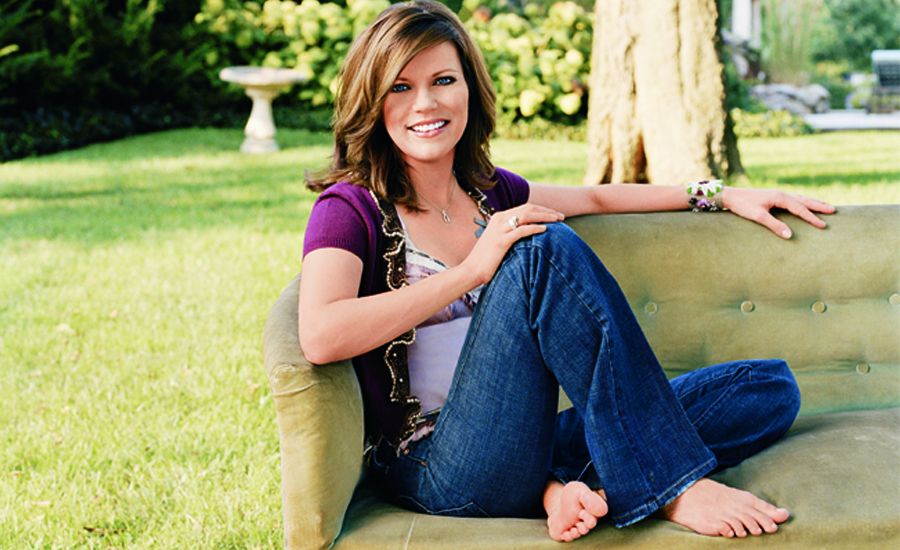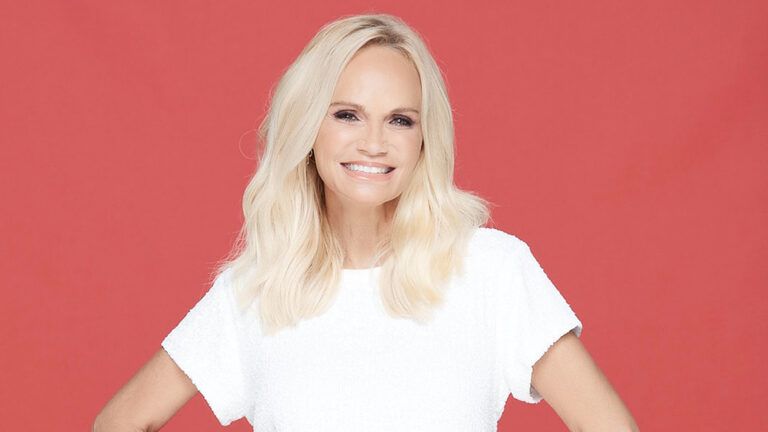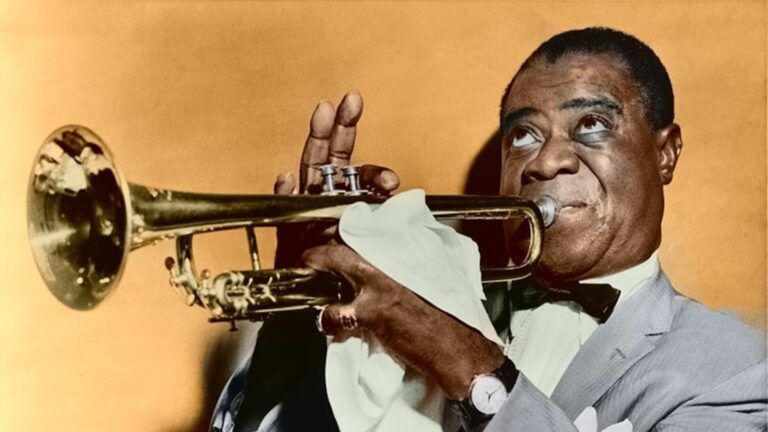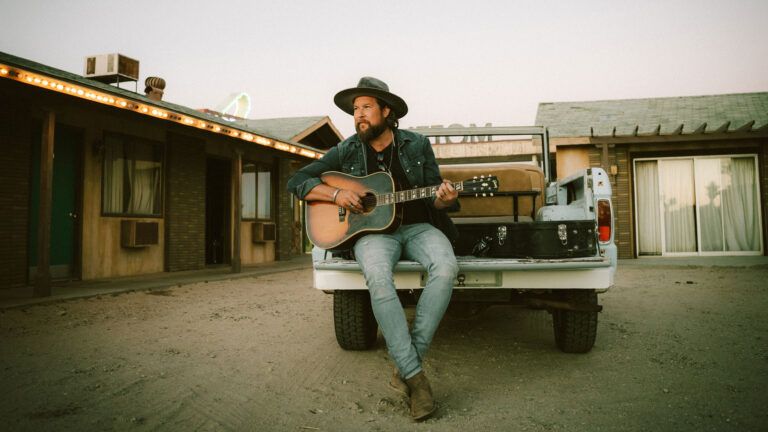I reached out and turned off the car radio right in the middle of Juice Newton’s “Angel of the Morning.” I was in no mood. My voice was shot, my hair reeked of cigarettes and my ears were still ringing from a long night of belting out top-40 hits in a little club in Wichita.
Not even a good country song was going to cheer me up. Above the empty road, the sky was moonless and clear. A cold light played across the snow-covered fields.
Midwestern towns can get a real lonely feeling in the small hours of the morning. The kind of feeling that makes you wonder about the bigger things in life and ask yourself some tough questions. Especially when you’re feeling 22 going on 40.
Things weren’t that bad, really. I was newly married and getting paid to do what I loved more than anything in the world—singing. I wasn’t getting paid much, that’s for sure.
Most months my husband, John, and I barely scraped by between his sound-engineering jobs and the cash I took home from my nightclub gigs. Still, I thought I’d feel happier than this. Something was missing.
My gigs felt an awful lot like drudge work. I’d even had to scale back my club dates because my voice was getting hoarse. “Your voice is strained from singing,” my doctor had told me recently. “And all that second-hand smoke isn’t helping any either.”
But it wasn’t just my voice that was feeling tired—it was all of me. Lord, I thought, pulling into the driveway of our tiny rented house on the outskirts of town, if I’m this tired at twenty-two, what will I feel like when I’m forty?
I stepped out of the car, pulled my jacket close against the Kansas night and walked up the drive and into the house. Taking off my makeup in the bathroom, I thought back to my first singing gig ever: the Sharon, Kansas, School Christmas pageant of 1972. I was all of six.
I’d rehearsed in the living room of our family farmhouse for the big event, and I can still remember the pride on Dad’s face as he watched me.
Dad was a farmer—a good one—but music had always been his real joy. Like most farmhouses, ours had a big old toolshed out back, but our shed had as many instruments—banjos, mandolins, even a creaky old accordion—as tools.
My brother, Marty, and I would spend hours out there, getting a feel for all of them, trying to force something resembling a tune out of each, imagining we were up on stage somewhere instead of a dusty old shed in the middle of nowhere.
Three years after that Christmas pageant we formed The Schiffters (from Schiff, our last name). My dad played guitar and did most of the singing. Marty played guitar. I sang and—later—played piano and keyboards. Mom ran the sound.
Saturday nights we’d work the local country circuit and Sunday mornings we’d play at church.
Nothing beat the thrill I got standing at the microphone, belting out those country tunes with Dad. Even at nine I was learning to bring emotion to the lyrics I sang. At a typical Saturday night barn dance we might play for four hours, but the time always flew by.
There was a special feeling I’d get, standing on those little Kansas stages—one I could never put my finger on completely. A feeling that I was doing what I was supposed to be doing—what God gave me the talent to do.
Joy. I guess that’s as close a name for it as I can give. It’s that feeling you get when you really connect with the purpose of your life.
I finished high school and moved to Wichita—the big city—and branched out musically. “If you want to make a living singing,” my music friends said, “you can’t be singing Earl Scruggs all your life.” It was a big world, and I had to change to meet it.
So I did. By that cold January night in 1989, I was a level-headed grown-up, with a grown-up understanding of what being a working singer meant. The club audiences didn’t want to hear Buck Owens and Merle Haggard. They wanted to hear Madonna and Cyndi Lauper.
Singing was a job. And if that meant that it didn’t have the old magic, that was just how life went, sore vocal cords and all.
Climbing into bed dog-tired and feeling a lot older than I should have, it just didn’t seem right. I had to make a change. But was it too late?
A couple of days later Dad called. Nothing unusual there. He liked to check up on me. Dad had kept the Schiffters going after I left, but we hadn’t done any singing together lately.
“They’re having a battle of the bands right there in Wichita next month,” he said. “I’m going to enter. I thought you might like to sing a few songs with us. What do you say?” Suddenly that tired feeling faded. Even my voice sounded clearer.
“I’ll be there,” I said. “We’ll blow the competition away!”
The gig took place at a little club that seated about 100—smaller even than the joints I was used to working. John was at the soundboard and Mom was in the audience. As usual, Dad sang most of the numbers with me on backup vocals, but I stepped up and sang a few myself.
I was barely a few bars into a Patty Loveless number when I felt something. A feeling of connection with the audience. And with something larger, something bigger than the music. Like when I was just a kid. That old thrill. That feeling of doing what I wanted to do. What I was meant to do.
You know what? We lost the competition, but I couldn’t have cared less. John was practically jumping up and down when I got off the stage, waving a cassette of the show. “You gotta hear this!” he said. “Let’s go out to the truck and give a listen.”
We walked out to the parking lot and got into John’s truck. He switched on the ignition and slipped the tape in. We sat back in our seats like a couple of teenagers at the drive-in and listened. Pretty soon we were tapping our toes and singing along.
John was right. There was something special in that sound.
I turned to my husband. “Listen,” I said. “We’re all put on this earth for something. I want to be a country singer. This is the music that’s in my soul. I want us to move to Nashville. I want this to be my life.”
That’s just what we did. I was going to make it big in country music. I had the chops and I had the heart. And right off the bat I got a job in the music business—selling T-shirts at Garth Brooks concerts!
No, it wasn’t exactly stardom. But I didn’t care. I’d taken my leap of faith. I was close to the music, and pretty soon, with God’s help, I’d be making that music too.
John and I worked our tails off (John did Garth’s sound and I moved a lot of Garth T-shirts!). We also pestered the record companies, and in 1992 I went out on tour again with Garth—not as his T-shirt vendor but as his opening act.
You know what else? Those pesky voice problems went away too, just like I figured they would.
Last year, I released an album called Timeless, full of nothing but good old country standards. From “I Can’t Stop Loving You” to “Help Me Make it Through the Night,” they’re the kinds of songs I used to sing with Dad back in Sharon.
In 2006, I celebrated my fortieth birthday. I’m blessed to be making the music I love to make. The music I was put here to make. And I have three beautiful daughters whom I’m very much there for as a full-time mom.
Sound tiring? Well it is. But I’ve come to discover that there are two kinds of tired: a bad kind—like the kind I felt that night back in 1989—and a good kind. And this is definitely the good kind.






